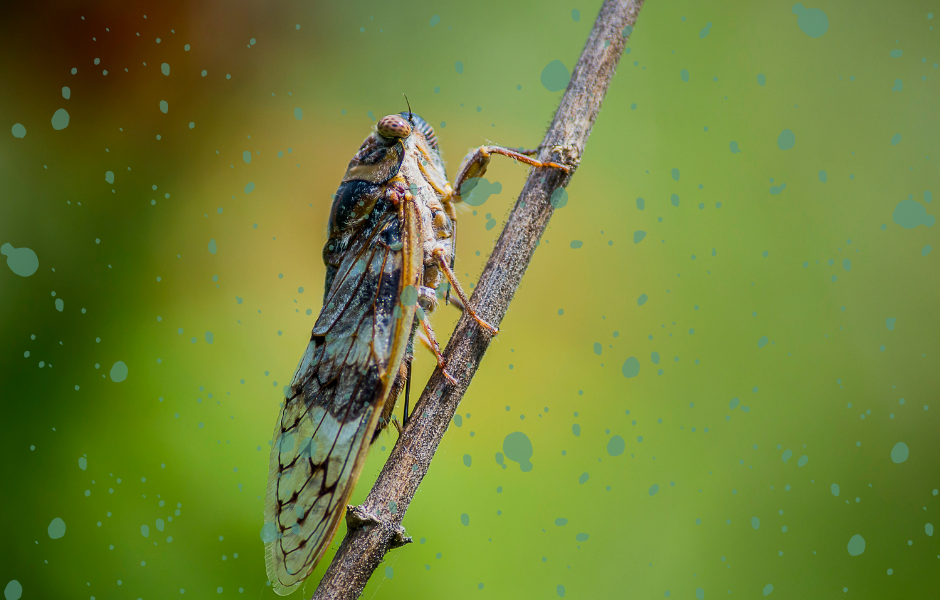
This children’s article, Singing cicadas return to the UK after 30 years, is written for native English speakers and learners of English as a second or foreign language. It helps children improve their reading and comprehension skills while learning new vocabulary and discovering a real-life insect comeback story. This engaging article is perfect for young readers interested in animals, nature, and how scientists protect endangered species.
The forest may soon buzz again
For the first time in 30 years, a strange, musical insect could be heard again in southern England.
Known for its loud, buzzing song, the New Forest cicada once filled the summer air with its sound. Then it vanished, not a single buzz since the 1990s. But now, thanks to scientists and a clever plan, these singing insects are being given a second chance.
Bringing back singing cicadas
This week, 11 female cicadas were brought to the UK from northern France. They were carefully placed in a special new habitat at Paultons Park, near the New Forest, the very place they once lived.
Some of the insects are already carrying eggs and have started laying them among raspberry canes and young hazel trees. These plants were chosen to match the environment cicadas like best.
What are cicadas?
Cicadas are forest insects with see-through wings and black bodies with shiny gold rings. The females can grow up to five centimetres long. Only the males sing, and they are loud.
Some people say their buzz sounds like a high-pitched power line or even a robot lawnmower hidden in the trees.
Life underground
One of the most surprising things about cicadas is how they grow. After hatching, baby cicadas, called nymphs, live underground for years, slowly feeding on roots. The team won’t know if any have survived and grown into adults until at least 2029.
If all goes well, these future adults could be released into wild parts of the New Forest, at secret locations to keep them safe.

What caused them to disappear?
Experts think the New Forest cicada became extinct in the UK because of changes in the way forests were managed. Over time, their perfect home became less suitable. But now, forest managers are working closely with scientists to make sure the land is better for them.
The team is also studying cicadas in Slovenia to learn more about how to care for them in the long term.
One day, the New Forest might buzz again — and that sound would mean the cicadas are home and happy.
To learn more about incredible insects, visit Natural History Museum: Insects
Article vocabulary list
- Cicada – a loud insect with clear wings that lives part of its life underground
- Reintroduce – to bring an animal or plant back to a place it used to live
- Habitat – a natural home for an animal or plant
- Nymph – the young form of some insects that live underground before becoming adults
- Extinct – no longer existing in the wild
- Conservationist – a person who works to protect nature and wildlife
- Buzz – a humming or vibrating sound
- Species – a group of living things that are alike and can have babies together
Comprehension questions
Just click the plus (+) to see the answer
1. What is special about the New Forest cicada?
a) It glows in the dark
b) It sings loudly
c) It can fly backwards
Answer: b) It sings loudly
2. Where were the cicadas brought from?
a) France
b) Germany
c) Slovenia
Answer: a) France
3. What kind of trees and plants were added to the cicadas’ new home?
Example answer: Raspberry canes and young hazel trees.
4. What do cicada nymphs do underground?
a) Fly around
b) Feed on roots
c) Sleep the whole time
Answer: b) Feed on roots
5. When will scientists know if the baby cicadas survived?
a) 2026
b) 2027
c) 2029
Answer: c) 2029
6. Why did cicadas disappear from the UK?
Example answer: Changes in the way forests were managed made it harder for them to survive.
7. What does the article say cicadas might sound like?
Example answer: A high-pitched power line or a robot lawnmower.
Sinead is a writer and EFL teacher with eight years’ experience. She’s a native English speaker who loves making news stories fun and easy to understand for children around the world. Her passions include travel, animals, and helping to make the world a kinder, more sustainable place.




